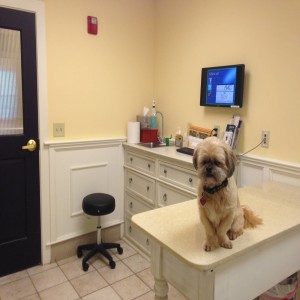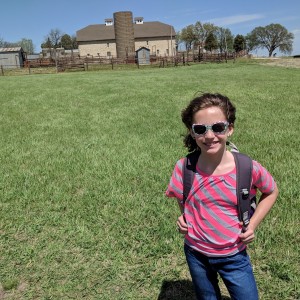
- Podcast Features
-
Monetization
-
Ads Marketplace
Join Ads Marketplace to earn through podcast sponsorships.
-
PodAds
Manage your ads with dynamic ad insertion capability.
-
Apple Podcasts Subscriptions Integration
Monetize with Apple Podcasts Subscriptions via Podbean.
-
Live Streaming
Earn rewards and recurring income from Fan Club membership.
-
Ads Marketplace
- Podbean App
-
Help and Support
-
Help Center
Get the answers and support you need.
-
Podbean Academy
Resources and guides to launch, grow, and monetize podcast.
-
Podbean Blog
Stay updated with the latest podcasting tips and trends.
-
What’s New
Check out our newest and recently released features!
-
Podcasting Smarter
Podcast interviews, best practices, and helpful tips.
-
Help Center
-
Popular Topics
-
How to Start a Podcast
The step-by-step guide to start your own podcast.
-
How to Start a Live Podcast
Create the best live podcast and engage your audience.
-
How to Monetize a Podcast
Tips on making the decision to monetize your podcast.
-
How to Promote Your Podcast
The best ways to get more eyes and ears on your podcast.
-
Podcast Advertising 101
Everything you need to know about podcast advertising.
-
Mobile Podcast Recording Guide
The ultimate guide to recording a podcast on your phone.
-
How to Use Group Recording
Steps to set up and use group recording in the Podbean app.
-
How to Start a Podcast
-
Podcasting
- Podcast Features
-
Monetization
-
Ads Marketplace
Join Ads Marketplace to earn through podcast sponsorships.
-
PodAds
Manage your ads with dynamic ad insertion capability.
-
Apple Podcasts Subscriptions Integration
Monetize with Apple Podcasts Subscriptions via Podbean.
-
Live Streaming
Earn rewards and recurring income from Fan Club membership.
-
Ads Marketplace
- Podbean App
- Advertisers
- Enterprise
- Pricing
-
Resources
-
Help and Support
-
Help Center
Get the answers and support you need.
-
Podbean Academy
Resources and guides to launch, grow, and monetize podcast.
-
Podbean Blog
Stay updated with the latest podcasting tips and trends.
-
What’s New
Check out our newest and recently released features!
-
Podcasting Smarter
Podcast interviews, best practices, and helpful tips.
-
Help Center
-
Popular Topics
-
How to Start a Podcast
The step-by-step guide to start your own podcast.
-
How to Start a Live Podcast
Create the best live podcast and engage your audience.
-
How to Monetize a Podcast
Tips on making the decision to monetize your podcast.
-
How to Promote Your Podcast
The best ways to get more eyes and ears on your podcast.
-
Podcast Advertising 101
Everything you need to know about podcast advertising.
-
Mobile Podcast Recording Guide
The ultimate guide to recording a podcast on your phone.
-
How to Use Group Recording
Steps to set up and use group recording in the Podbean app.
-
How to Start a Podcast
-
Help and Support
- Discover

It started with ideas. Dr. Melissa Detweiler, a small animal veterinarian in a Midwestern small town, had a lot of them, and writing blogs, commentary and opinion seemed like the route. But she didn't know, as a veterinarian, which audience to tackle first: pet owners or those "in the profession," vet med.
"I wanted to say the things [in my blogs] to pet parents that maybe I held back from saying in the exam room," she says. Then she started writing pieces for veterinary magazines to her peers.
Her podcasting took a similar route, with her first podcast ("This Vet's Voice") aimed at veterinary clients, but her next aimed squarely at the emotional challenges of life for veterinary professionals ("DVM Divas").
Originally, it seemed a far-off idea. Audio snippets, sure, but a podcast? "Who can do that? That's not something little ol' me can do with my iPhone and earbuds," she says. "I used the voice memo app on my phone [for my first audio]."
And she says she was terrified at the outset, using a podcast alter ego name. Pet owners can get pretty bent out of shape online about things involving their pets. "[The alter ego] was my security blanket," Melissa says. "I can kind of hide under this umbrella here. It felt like it freed me up a little bit."
Now, well, she's out there, with two partners-in-crime (although it's not about crime, people) on her latest podcast.
Find out how she got more comfortable with her voice on audio, how she and her podcasting partners manage the conversation and what small-town America thinks of it.
(PHOTO CREDIT "File:Veterinary Office with dog.JPG" by MarkBuckawicki is licensed under CC0 1.0)
WANT TO KNOW MORE?
> Voiceover work is getting heavily advertised these days in work-for-home pandemic times. Melissa says she took an online course from Carrie Olsen, and she found it helpful in her podcasting.
More Episodes
 2026-01-13
2026-01-13
 107
107
 2025-06-29
2025-06-29
 26
26
 2025-01-21
2025-01-21
 74
74
 2024-12-17
2024-12-17
 32
32
 2024-12-03
2024-12-03
 41
41
 2024-08-27
2024-08-27
 69
69
 2024-06-18
2024-06-18
 36
36
 2024-03-12
2024-03-12
 62
62
 2024-01-09
2024-01-09
 72
72
 2023-11-14
2023-11-14
 45
45
 2023-10-03
2023-10-03
 57
57
Create your
podcast in
minutes
- Full-featured podcast site
- Unlimited storage and bandwidth
- Comprehensive podcast stats
- Distribute to Apple Podcasts, Spotify, and more
- Make money with your podcast
It is Free
- Privacy Policy
- Cookie Policy
- Terms of Use
- Consent Preferences
- Copyright © 2015-2026 Podbean.com




